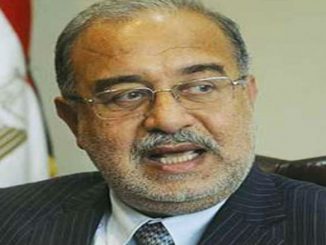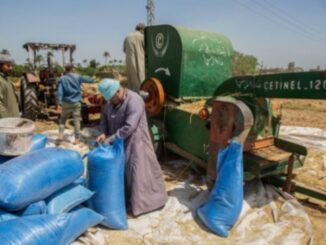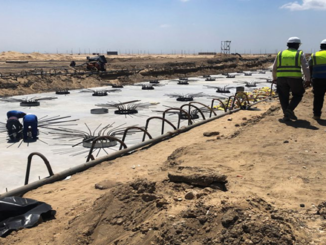
The recent subsidized infantry milk crisis has turned a spotlight on the army’s widening footprint in the economy and its potential impact on the struggling private sector at a time when al-Sisi, the former minister of defense ousted Egypt’s first democratically elected President Mohamed Morsi, is grappling with anemic growth, weak investor confidence and rising poverty, said the Financial Times.
The Financial Times wrote in an article titled:” President Sisi deploys army to tackle Egypt’s economic woes” that the latest crisis of the shortage in the subsidized infantry milk, huge trucks loaded with infantry milk rolled out of Alexandria port emblazoned with pictures of a smiling baby and a message for Egyptian parents: “Don’t pay more than 30 pounds. With the compliments of the armed force,” the FT reported.
Then, the trucks toured out across Egypt, distributing the imported infant formula to be sold at half the price charged by retailers — part of a military venture that” illustrates how Abdel Fattah al-Sisi is increasingly turning to the army to tackle the country’s economic woes.”
In this context, an army spokesman described the move as part of efforts to combat the “greed of monopolists” and ease life for Egyptians.
In fact, the military initiative was announced after shortages caused suppliers to raise prices and prompted a rare protest by poor mothers carrying their infants last month.However,it shows how the military interfere nearly in every civilian activity and how its is recalled in every crisis.
According to the FT, “the military — traditionally a powerful actor in the economy — has announced a string of new ventures over the past year in which it either secured contracts with the government or which it planned to launch itself.”
The military has widened its economic activity include producing cement, supplying medical items to hospitals, running the government’s smart-card system for the distribution of subsidized goods, establishing fish farms and manufacturing water meters.
Moreover, last year al-Sisi issued a law that allows the army to set up companies with the participation of domestic or foreign capital.
In response, activists on the social media criticized and mocked the military’s infantry milk imports. “And even normally restrained media commentators have raised questions about the effects on the private sector,” said the FT.
On teh other hand, Al- Sisi, whose government is hoping to secure a $12 billion International Monetary Fund loan, responded last week by scolding those who would “cast doubt” on the army. He also sought to reassure businesses.
He said,”No one should imagine that I would not support any sincere and honest investor working to benefit his country or to benefit himself. There are no limits … on people’s ability to work.”
During wars with Israel in the 1960s and 1970s, the military’s role in the economy started as it needed at that time to supply a large standing army. After signing the peace treaty in 1979 the military branched out into more civilian sectors, including building infrastructure. “But the scale of its activity has increased under al- Sisi as Egypt’s economic crisis has deepened,” as reported by the FT.
The military is the main investor in Egypt’s economy nowadays as investors have largely withdrew from the country, while tourist numbers have dried up because of terrorist attacks and a severe foreign currency shortage is strangling business.
FT said that to many Egyptians struggling from high inflation, the army — which has used its own farms and factories to pump cheap food into the market — has been performing a public service. However,” some businessmen fear it will be impossible to compete with an institution that has unrivaled political clout and is protected by law from revealing its accounts,” said the FT.
The editor of the daily Shorouk, Emad al-Din Hussein, wrote that the military deserved “thanks” for stepping in to “solve problems”. But he also called on civilian and army leaders to “re-evaluate the participation of the armed forces in economic activity”.
He added, “We should also discuss whether the participation of the army has impacted the size of local and foreign investment or not.”
Omar al-Shenety, managing director of Multiples Group, a regional investment bank said the army had “stepped in to inject momentum in the economy at a time of great need”. But he added that it would create unfair competition in some sectors.
Shenety said, “If a company is importing a product and the army comes in as an importer, the company can’t compete.”
“Despite having some justifications, we now have a new reality; there is direct competition between the army and some companies across various sectors.”
But it seems that there is no turning back in widening the military role as al-Sisi feels “unapologetic about the military’s role,” which is obvious in his speeches as he always recalls the military role.
In a recent speech, al-Sisi said that when senior military leaders asked him to run for president in early 2014 he made it “a condition” that the army would help him in his efforts to bolster the economy. He said, “I told them the challenges in Egypt are very, very, very tough … you have no choice but to put your hands with mine in rebuilding the Egyptian state.”



